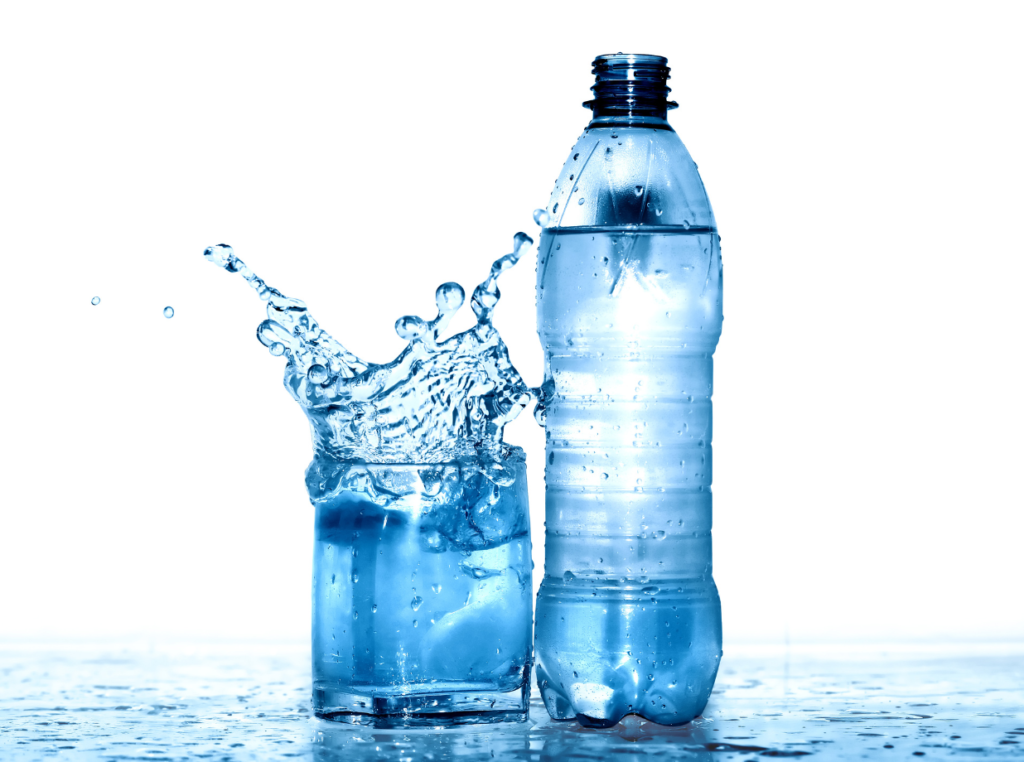Key Takeaways
- The myth of distilled water dehydration is not supported by scientific evidence.
- Distilled water is composed of pure H2O, with no minerals or impurities.
- Minerals play a crucial role in hydration and can be obtained from sources other than water.
- Drinking only distilled water can potentially lead to mineral deficiencies and health risks.
- Factors such as diet, exercise, and climate can influence the body’s absorption of water.
The Myth of Distilled Water Dehydration
There is a widespread belief that drinking distilled water can lead to dehydration, but is there any scientific evidence to support this claim? Examining the origins and perpetuation of this misconception is crucial for understanding the true effects of distilled water on hydration.
The belief that distilled water can dehydrate individuals has been circulating for decades, with many people cautioning against its consumption. This misconception is often attributed to the lack of minerals in distilled water, which are believed to be essential for proper hydration. However, the scientific evidence behind this claim is not as straightforward as it may seem.
Exploring the origins of this myth reveals that it may have been perpetuated by a combination of anecdotal reports, misunderstandings about the role of minerals in hydration, and the promotion of alternative water sources. As with many health-related beliefs, the myth of distilled water dehydration has persisted, despite the lack of robust scientific support. Understanding the importance of critically evaluating the evidence is crucial in dispelling this misconception and providing accurate information about the true effects of distilled water on hydration.
Understanding the Composition of Distilled Water
Distilled water is a type of purified water that undergoes a process of evaporation and condensation, removing impurities and contaminants. This process results in a water source that is free of minerals, such as calcium, magnesium, and other dissolved solids. Compared to other types of water, such as tap water and mineral water, distilled water stands out due to its purity and lack of minerals.
The absence of minerals in distilled water is a key factor in the perception that it can lead to dehydration. Minerals, such as sodium and potassium, play a crucial role in maintaining the body’s fluid balance and facilitating water absorption. However, the implications of the lack of minerals in distilled water on hydration are not as straightforward as commonly believed.
It is important to recognize that the composition of distilled water, while different from other water sources, does not necessarily mean that it has inherent dehydrating properties. The potential impact of the absence of minerals in distilled water on hydration requires a more nuanced understanding of the complex relationship between water, minerals, and the body’s overall hydration status.
The Role of Minerals in Hydration
Minerals, such as sodium, potassium, and magnesium, are essential for proper bodily function and hydration. These minerals play a crucial role in regulating fluid balance, facilitating water absorption, and supporting various physiological processes.
The relationship between mineral intake and water absorption is well-established. Minerals help to maintain the osmotic balance within the body, which is crucial for the efficient movement of water across cell membranes and the absorption of water from the digestive system. When the body lacks sufficient mineral intake, it can lead to imbalances in fluid regulation, potentially contributing to dehydration.
The concern about the lack of minerals in distilled water is that it may disrupt this delicate balance, leading to the perception that distilled water can dehydrate individuals. However, the scientific evidence on the potential impact of mineral-free distilled water on hydration is more nuanced. While the absence of minerals in distilled water may be a consideration, it does not necessarily mean that it will automatically lead to dehydration, as the body’s hydration status is influenced by a complex interplay of factors.
The Potential Risks of Drinking Distilled Water
| Myth | Fact |
|---|---|
| Distilled water can dehydrate you | There is no scientific evidence to support this claim. Distilled water is safe to drink and does not dehydrate the body. |
| Mineral loss | Some people believe that drinking distilled water can lead to mineral loss in the body. However, the amount of minerals obtained from water is minimal compared to the diet, and a balanced diet can easily replace any lost minerals. |
| Purification process | Distilled water is created through a process of boiling water and then condensing the steam. This process removes impurities and contaminants, making it safe to drink. |
The long-term consumption of distilled water has raised some concerns about potential risks, particularly related to the leaching of minerals from the body. The idea is that the lack of minerals in distilled water may cause the body to draw minerals from its own stores, potentially leading to mineral deficiencies over time.
However, the scientific evidence on the risks of distilled water consumption is not conclusive. While some studies have suggested a potential link between long-term distilled water consumption and mineral depletion, the findings are not definitive, and the magnitude of the risk remains a subject of ongoing debate.
It is important to note that the potential risks of distilled water consumption may be more pronounced in specific populations or health conditions. Individuals with pre-existing mineral deficiencies, certain medical conditions, or those who rely on distilled water as their primary water source may be more susceptible to the potential negative effects. In these cases, it is crucial to consult with healthcare professionals to develop a personalized approach to hydration and mineral balance.
Factors That Influence Water Absorption
The absorption and utilization of water by the body are influenced by a variety of factors, including water temperature, pH, and individual differences in water absorption rates. These factors can play a role in the perceived effects of distilled water on hydration.
Water temperature, for example, can impact the rate of water absorption. Cooler water may be absorbed more slowly, while warmer water may be absorbed more quickly. Similarly, the pH of water can also influence its absorption, with slightly alkaline water potentially being more readily absorbed by the body.
Individual differences in water absorption rates are also an important consideration. Factors such as age, health status, and genetic predisposition can all contribute to variations in how efficiently individuals absorb and utilize water. These individual differences may play a role in the perceived effects of distilled water on hydration, as some individuals may be more sensitive to the lack of minerals than others.
Understanding these various factors that influence water absorption is crucial in evaluating the potential impact of distilled water on hydration. It highlights the need for a more personalized approach to addressing hydration concerns, rather than relying on broad generalizations about the effects of distilled water.
Balancing Distilled Water Intake with Mineral Supplementation
Given the concerns about the lack of minerals in distilled water and its potential impact on hydration, it is important to consider strategies for ensuring adequate mineral intake when consuming distilled water. This can involve incorporating mineral-rich foods and supplements into one’s diet to maintain a balanced mineral profile.
Consuming a variety of nutrient-dense foods, such as leafy greens, nuts, seeds, and certain fruits and vegetables, can help provide the body with the necessary minerals to support proper hydration and overall health. Additionally, the use of mineral supplements, such as those containing calcium, magnesium, and potassium, can be a valuable strategy for individuals who rely on distilled water as their primary water source.
It is crucial to work with healthcare professionals, such as registered dietitians or nutritionists, to determine the appropriate mineral supplementation based on individual needs and health status. This personalized approach can help ensure that the potential risks associated with long-term distilled water consumption are effectively mitigated, while still allowing for the benefits of a pure, contaminant-free water source.
Debunking the Misconceptions About Distilled Water
The myth of distilled water dehydration has persisted for years, despite the lack of robust scientific evidence to support it. It is essential to address the common misconceptions surrounding distilled water and present the scientific evidence that contradicts these claims.
One of the primary misconceptions is that the lack of minerals in distilled water automatically leads to dehydration. However, as discussed earlier, the relationship between mineral intake and hydration is more complex, and the absence of minerals in distilled water does not necessarily translate to a dehydrating effect.
In fact, the purity of distilled water and its removal of contaminants can be considered a potential benefit, as it eliminates the presence of harmful substances that may interfere with the body’s hydration processes. Additionally, the potential benefits of distilled water, such as its use in medical settings and its role in certain industrial applications, should be acknowledged and considered within a balanced perspective.
By addressing these misconceptions and presenting the scientific evidence, individuals can develop a more informed and nuanced understanding of the role of distilled water in hydration and overall health. This can help dispel the persistent myths and encourage a more balanced approach to the use of distilled water.
Alternatives to Distilled Water for Optimal Hydration
While distilled water can be a viable option for certain applications, it is important to consider alternative water sources that may better support optimal hydration. These alternatives include spring water and mineral water, which can provide the body with the necessary minerals to maintain fluid balance and facilitate water absorption.
Spring water, for example, is often rich in naturally occurring minerals, such as calcium, magnesium, and potassium. These minerals can contribute to the overall hydration status and support various physiological processes. Mineral water, on the other hand, is water that has been infused with additional minerals, often through natural or artificial means, to enhance its mineral content.
When choosing alternative water sources, it is crucial to consider factors such as the specific mineral composition, water quality, and personal preferences. Individuals should also be mindful of their individual hydration needs, health status, and any specific concerns or requirements they may have.
By exploring these alternative water options and incorporating them into a balanced hydration strategy, individuals can ensure that they are meeting their mineral and hydration requirements, while potentially mitigating the perceived risks associated with the long-term consumption of distilled water.
Consulting Experts for Personalized Hydration Guidance
Hydration is a complex and highly individualized aspect of health, and the effects of distilled water on hydration can vary from person to person. It is essential to acknowledge the complexity of individual hydration requirements and the importance of seeking professional advice from qualified experts.
Healthcare providers, such as registered dietitians, nutritionists, and healthcare professionals specializing in hydration and fluid balance, can provide personalized guidance on the appropriate water sources, mineral intake, and overall hydration strategies. These experts can assess an individual’s specific needs, health status, and any underlying conditions that may influence their hydration requirements.
By consulting with qualified professionals, individuals can develop a tailored approach to addressing their hydration concerns, including the potential use of distilled water and the need for mineral supplementation. This personalized guidance can help ensure that individuals are meeting their hydration needs while minimizing any potential risks associated with the long-term consumption of distilled water.
Ultimately, the truth about distilled water and its effects on hydration is more nuanced than the widespread belief that it can lead to dehydration. By understanding the composition of distilled water, the role of minerals in hydration, and the various factors that influence water absorption, individuals can make informed decisions about their water consumption and hydration strategies. By consulting with experts and exploring alternative water sources, individuals can achieve optimal hydration and maintain a balanced, healthy lifestyle.
Frequently Asked Questions

What is distilled water?
Distilled water is water that has been boiled into vapor and then condensed back into liquid form. This process removes impurities and minerals from the water, resulting in a purer form of water.
Can distilled water actually dehydrate you?
There is a common misconception that drinking distilled water can dehydrate the body. However, there is no scientific evidence to support this claim. Distilled water is still a form of water and can contribute to overall hydration.
Is distilled water safe to drink?
Distilled water is safe to drink and is often used in medical settings and laboratories due to its purity. However, because it lacks minerals that are beneficial to the body, it may not be the best choice for everyday hydration.
What are the potential drawbacks of drinking distilled water?
One potential drawback of drinking distilled water is that it lacks essential minerals such as calcium and magnesium, which are important for overall health. Regular consumption of distilled water may lead to mineral deficiencies if not supplemented through other sources in the diet.
Should I drink distilled water for hydration?
While distilled water is safe to drink, it may not be the best choice for everyday hydration. It is recommended to consume a variety of water sources, including mineral-rich water, to ensure adequate hydration and mineral intake.



